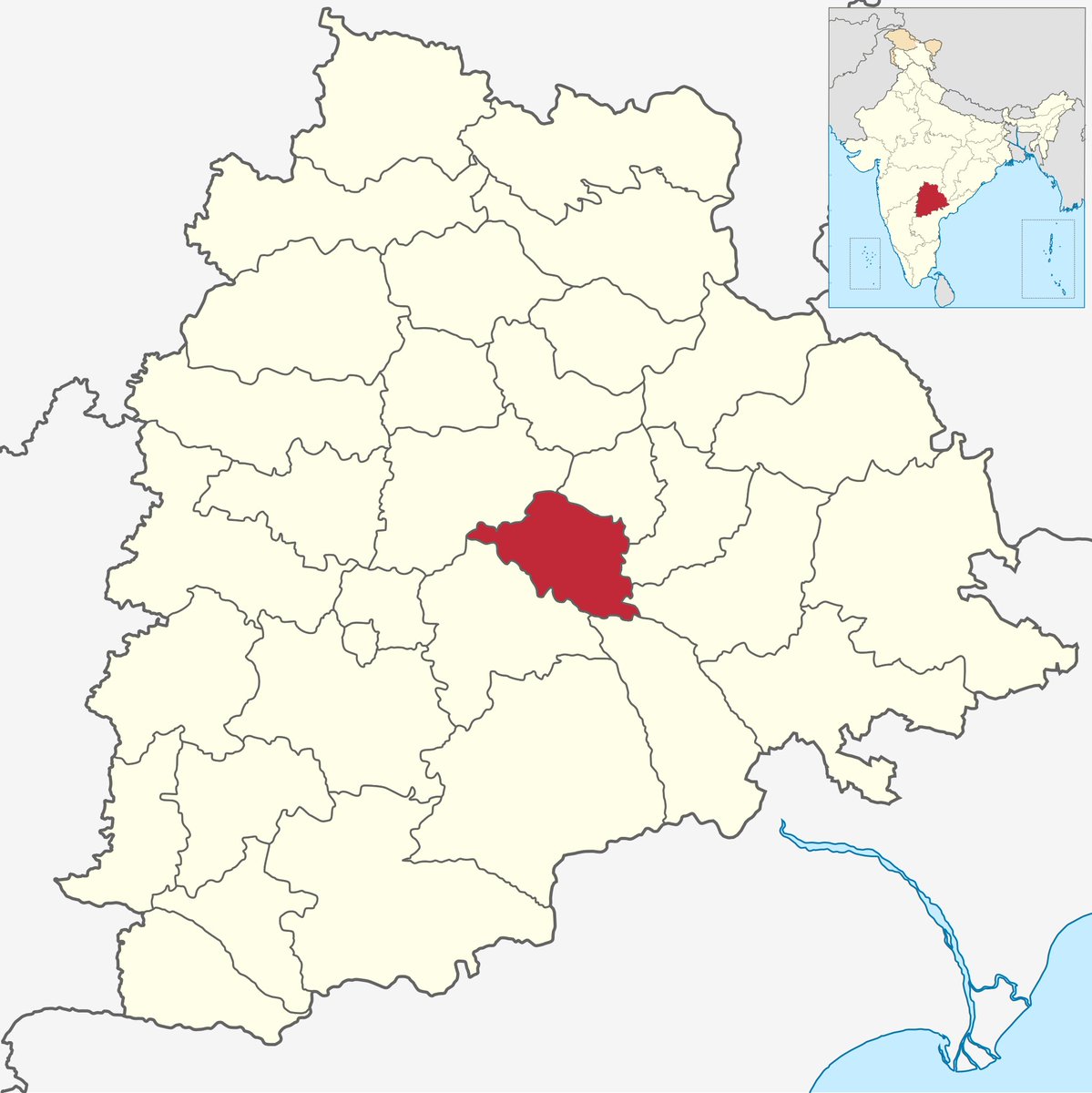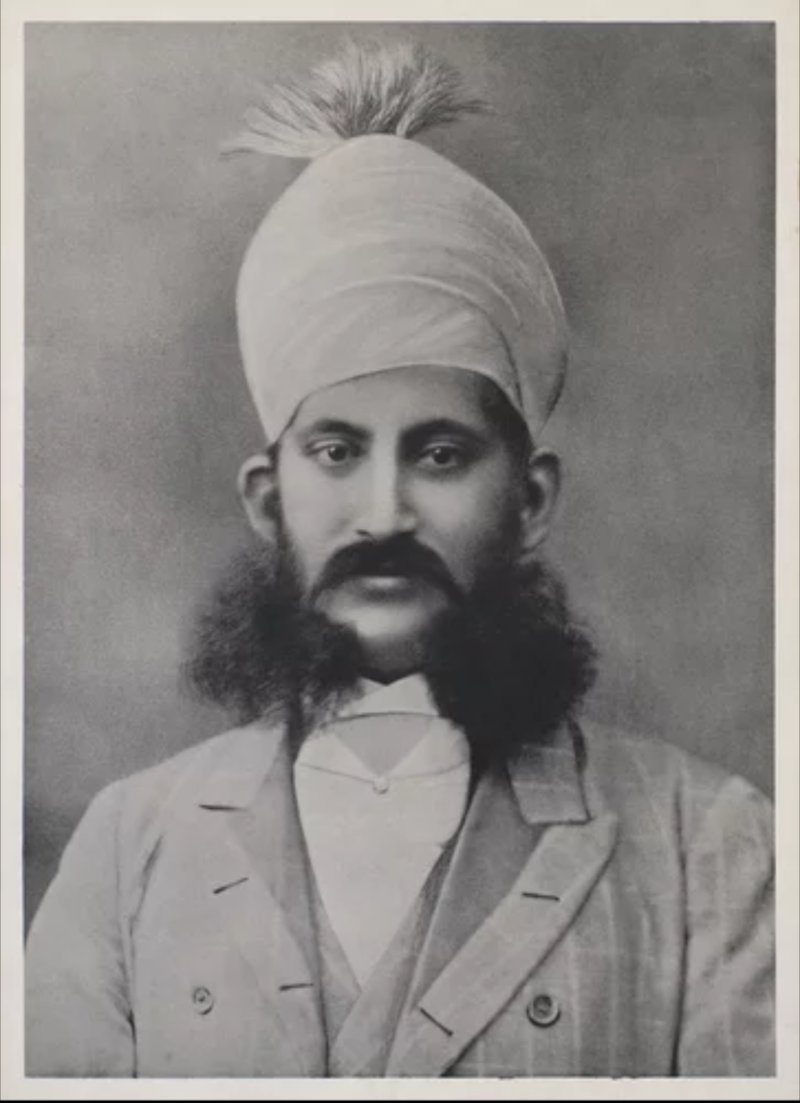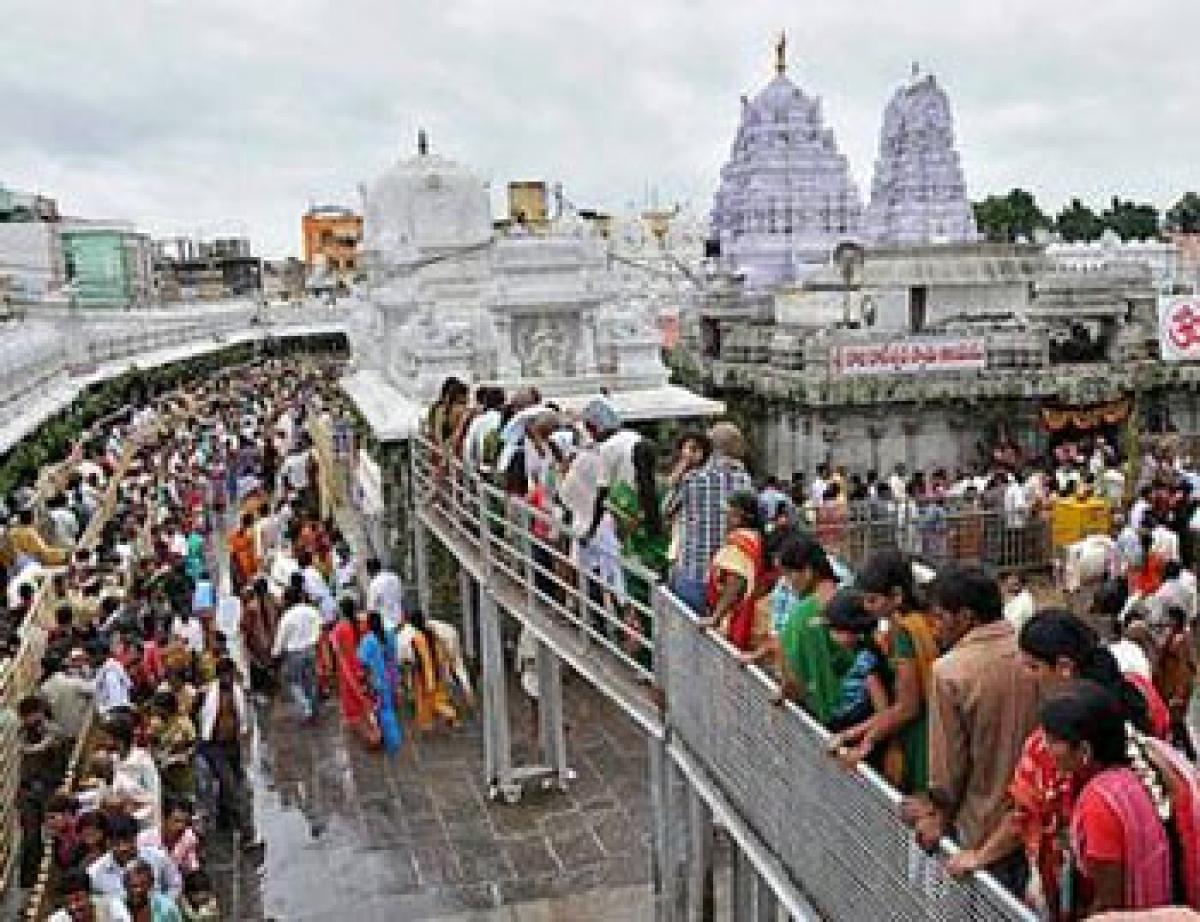District names of #Telangana. An etymology thread
1. Adilabad: Named after Ali Adil Shah I, the fifth sultan of Bijapur, who ruled from 1558-1579.
1. Adilabad: Named after Ali Adil Shah I, the fifth sultan of Bijapur, who ruled from 1558-1579.

2. Bhadradri Kothagudem: from Bhadragiri, meaning “the mountain abode of Bhadra” – the child of Meru and Menaka. #TelanganaDistricts 

3. Hyderabad: From the words HAYDAR, meaning ‘lion’ and ABAD, meaning ‘city,’ after caliph Ali Ibn Abi Talib. He was nicknamed Haydar because of his lion-like valor in battle. Ali Ibn Abi Talib was a cousin, son-in-law and companion of Prophet Muhammad. 



5.Jangaon: from “Jain gaon,” meaning “village of Jains.” Jain Tirthankara sculptures that were found in the excavations revealed the existence of Jainism in this region. 



6.Jayashankar Bhupalapally: After Kothapalli Jayashankar—a social activist and former vice chancellor of Kakatiya University—who played a big role in the Telangana movement fighting for a separate state. 



7. Jogulamba Gadwal: After Goddess Jogulamba. Located in Alampur, the temple is one of the asta-dasa (18) Maha Shakti Peethas. The name Jogulamba is said have derived from the Telugu word “Yogula Amma” meaning “Mother of Yogis.” 



8. Kamareddy: After Chinna Kamireddy, the ruler of Domakonda Fort, who ruled in this area in the early 17th century. 



10. Khammam: Derives from Stambhadri, the name of a local hill, which is home to an ancient temple of Narasimha Swamy. It is believed that Lord Narasimha emerged from a stone pillar and killed Hiranyakasyapu to save his child devotee Prahlada. 



The vertical rock under the temple is known as ‘Kamba’ and the town at the foot of the hill was called Kambamettu, which gradually became Khammam. 

11. Kumaram Bheem Asifabad: After the legendary Gond martyr Kumuram Bheem who fought against the Nizam of Hyderabad. He's said to have coined the slogan "Jal, Jangal, Zameen" (Water, Forest, Land), symbolizing the sentiment against encroachment and exploitation. 



12. Mahabubabad: After Mahabub Ali Khan, the sixth Nizam of Hyderabad. It was previously known as Manukota, meaning “a fort made of trees” as the region was covered by plenty of trees forming like a fort. 



14.Mancherial: I couldn’t find the story behind this. I’m thinking it probably derives from “Manchi Revu” as the town Mancherial is located on the banks of the river Godavari. The name probably got anglicized to “Mancherial”. Let me know what you think 



15. Medchal-Malkajgiri: It's believed that Medchal derives its name from the Telugu words “Medi” and “Chelama” meaning “fig spring” 



16. Medak: from the Telugu word ‘Metuku,’ meaning “rice” after the abundantly grown rice crop (paddy) in the region. 



18. Nalgonda: from two Telugu words - Nalla and Konda, meaning "Black Hill." The hill can be seen in Nalgonda. 



19. Nirmal: Said to have derived from Nimma Rayudu or Nimma Naidu (some claim it as Neema Naik) – a ruler who was a great patron of arts. He encouraged artist communities to settle in the town, making it a hub for finest wooden toys, and paintings. 



20. Nizamabad: After Mir Mahboob Ali Khan, the sixth Nizam of Hyderabad. This is the third district to be named after him. Originally, the district called was known as Indur after the name of king Indradatta who had ruled this region during 5th Century A.D 



21. Peddapalli: Means a "big village" in Telugu. NTPC Ramagundam Power Plant is now located in this district. 



22. Rajanna Sirisilla: From Vemulawada Raja Rajeswara Swamy Temple where the presiding deity is fondly known as “RAJANNA” and SIRISHALA, meaning “the center of wealth” for it is the hub of silk textiles providing a livelihood for many. 



BTW, the Vemulawada Temple is famous for the kode mokku (bull vow) ritual where a devotee makes the pradakshina (circumambulation) of the temple with a bull (nandi), which is the vahana of Lord Shiva worshiped as Rajanna here. 

23. Ranga Reddy: Named after the former Deputy CM of the United Andhra Pradesh, Konda Venkata Ranga Reddy. He was a freedom fighter who had fought with the Razakars who were against the idea of integrating the Hyderabad State into the Indian Union. 



..to be continued
24. Sangareddy: Rani Sankaramma, known for her valor and bravery, ruled in this region in the 18th century. While textbooks mention the district takes the name from her father Sangareddy, the district administrative website mentions it's named after her son, Sanga. 



26. Vikarabad: After Sir Viqar-ul-Umra, a Paigah noble, who served as the Prime Minister of the Hyderabad State. 



BTW, the majestic Falaknuma Palace in Hyderabad was built by Sir Viqar-ul-Umrah. He used it as his private residence before handing it over to the sixth Nizam. It’s now run by Taj Hotels. 

27. Warangal: From Orugallu, meaning “single rock.” It’s believed the town was built on a single rock. Another version holds the Kakatiyas—who had Orugallu as their capital—were known to build monuments out of a single rock. Hence the name. It's aka Ekasilanagaram in the past. 



28. Yadadri-Bhuvanagiri: After “YADA” Maharshi and “ADRI,” meaning “hill.” It’s said the sage had performed penance in the vicinity of the current Lakshmi Narasimha Swamy temple. 



29. Suryapet: Probably after one of the temples dedicated to Surya Deva. There are quite a few Sun temples in the district. 



30. Wanaparthy: After Raja of Wanaparthy (Wanaparthy Samsthanam). Not sure about the meaning of the word “Wanaparthy.” If any of you know, please add on. Marking this to @Collector_WNP as well. 



31, 32, 33: Narayanpet, Hanumakonda, and Mulugu: These names seem to be the toughest ones to figure out. While there's no official account on the origin, here's what I've figured out from my interactions with a few localites
Narayanpet, most probably after a temple dedicated to Satyanarayana Swamy.
Hanumakonda, from Anumakonda, which is said to be named after Anumaiah and Kondaiah
Mulugu: Possibly after the word "Mulugu," meaning "bokkasamu (exchequer)" in Telugu.
Thank You!
Hanumakonda, from Anumakonda, which is said to be named after Anumaiah and Kondaiah
Mulugu: Possibly after the word "Mulugu," meaning "bokkasamu (exchequer)" in Telugu.
Thank You!
• • •
Missing some Tweet in this thread? You can try to
force a refresh






























